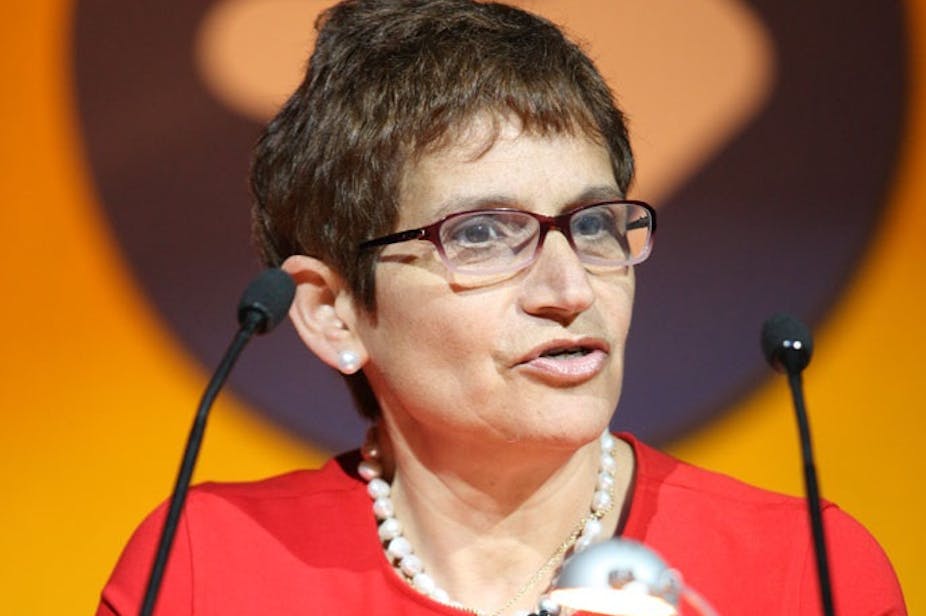The call for more funding for general practice by Clare Gerada, the outgoing chair of the Royal College of GPs, attracted much attention. But within the profession, an interview in which she gave cautious support for abolishing “independent contractor” status and making all GPs salaried has made more waves.
The case for more funding is clear. In the ten years from 1997 to 2007, the number of GPs (full-time equivalents) in England rose by almost a fifth; but since 2000 the number of consultations has increased by more than a third. This is for a mixture of reasons: an extra 2m people or so to look after; more older patients with more needs; more available treatments; higher expectations. Yet since 2009-10 the funding allocated to general practice has fallen, in real terms, by £400m a year.
Gerada wants this restored, starting with an immediate lump sum, like the £500m given to hospitals to help them cope with the similarly growing pressure on Accident and Emergency departments. The government’s response is that last year it “invested” 1.3% more (it doesn’t say in real terms) in general practice, and is putting £50m on the table for GPs who come up with more efficient ways of working. It is also trying to get more medical students to choose to be GPs.
But not only is this money far too little to make any impression on the widening gap between GP resources and patient needs, the call for “more efficient ways of working” also raises the question of what the government’s long-term vision for general practice is, and whether independent contractor status is compatible with it.
Practice and partnership
More than 40% of GPs in England are already salaried employees, almost all of them working for GP partnerships, and the proportion is steadily rising. More and more GPs are women, who want the freedom of part-time work, and both women and men tend to want to pracitise free from the administrative responsibilities that come with being an independent contractor.
Independent contractor GPs are mostly partners running practices as small businesses, and often employing younger GPs on salaried terms. Their contracts are with NHS England. Experienced salaried GPs may be offered partnerships; whether they choose to take up the offer depends on many considerations, including whether they like the idea of being in control of how they work, and whether they have the funds to pay for a share of the practice’s assets.
Gerada herself is a partner in a group of 16 London practices run by 60 salaried GPs. The group’s organisation chart looks like that of a medium-sized business – which is exactly what it is, except that its four partners are clearly not in it to get rich, but to try to improve patient care. It responds to three kinds of challenge: having a variety of skills and organisational flexibility to deal with the increasing pressure of patient demand; achieving economies of scale to deal with rising administrative costs; and having the scale of resources needed to bid successfully against big corporations as tendering for services becomes more common.
This is undoubtedly the model Gerada has in mind. She knows it won’t fit all circumstances, including those of many smaller practices and those in rural areas - where she envisages GP federations linked to larger practices will make it possible for them to draw on the expertise of “specialist GPs” and other services that larger practices are able to offer.
Who will doctors be working for?
But while it may be partners in these smaller “traditional” practices who have reacted most negatively to the idea of being salaried, they aren’t the only GPs who may have legitimate worries. If all GPs were salaried, who would they be working for? The regional offices of NHS England? Hospital foundation trusts? GP Federations? Or private companies such as Boots or Virgin?
And what concept of general practice will any of these employers have? Won’t they look, willingly or otherwise, for ways to make general practice more “efficient” by treating patients more and more like cars, going to different treatment centres for different purposes, with an annual MOT? What would that mean for continuity of care and GPs’ response to the emotional as well as physical needs of people who are ill that is at the heart of the UK’s world-famous tradition of general practice?
The reality is that not only politicians, but the now independent policymakers in NHS England and Monitor, want to make primary care “better value for money”, better able to take on some of the work now done in hospitals, and better integrated with social services and community health services. For this they would like a more uniform and concentrated GP workforce who will do what the government wants without endless contract negotiations, and without wide variations in compliance with government plans. Ultimately most policymakers would like all primary care to be adaptable to an American-style Health Management Organisation (HMO) system of “managed care”, in which doctoring is standardised and controlled through prepayments in the name of “cost-containment”.
It is really this threat, not independent contracting versus salaried employment, that is at stake in what happens next, and what Gerada will be grappling with in her new role as NHS London’s Clinical Chair for Primary Care Transformation. Whether she will come to regret taking on this role remains to be seen, but she is surely right in thinking that unless GPs recognise the risks the profession is facing, and take the initiative, the government is likely to do it for them.

